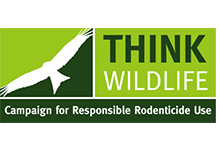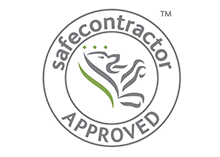Moles are amazing animals that are essential to the ecology. Still, when their actions have an adverse effect on human areas, they can turn into pests. In this thorough guide, we will dig into garden mole removal, looking at their behaviours, possible infestations, and West Wales Pest Control’s involvement in dealing with garden mole removal-related problems.
What Are Garden Moles?
Moles are tiny animals in the Talpidae family that live underground. Mole species are characterised by their muscular front limbs with specialised claws, silky hair, cylindrical bodies, and adaptations for an underground habitat. Moles come in many species, but they all have a rapid metabolic rate, limited vision, and an acute sense of touch.
As insectivores, moles primarily consume insects, earthworms, and larvae found in the soil. Their tunnelling practices benefit the environment since they help with soil aeration and insect control. However, moles’ digging activities can cause problems when entering human settings.
Signs Of Garden Mole Infestation?
Observing particular indicators is necessary to identify a problem with moles infestations. Typical indications consist of:
Molehill: When moles dig tunnels beneath the surface, they produce little mounds of earth called molehills. The intensity of the infestation may be inferred from the size and frequency of molehills.
Moles dig surface tunnels, which are elevated ridges in gardens and lawns. Moles use these tunnels as entrance points to various areas of their underground network.
Damaged Vegetation: When moles tunnel, they upset the roots of plants, which causes the vegetation to wilt or die. This can indicate the presence of moles activity, particularly in agricultural or garden settings.
Burrow entrances that are visible: Mole burrow entrances, which resemble tiny holes in the earth, may occasionally be seen. These openings are positioned carefully to provide access to various hunting areas.
What Is the Origin of Moles?
Several species of moles are endemic to different parts of the world, and they are suited to specific environments. The most prevalent species in the UK is the European Mole (Talpa europaea). Because of their adaptability, moles may live happily in various settings, including woods and grasslands.
Moles like loamy, damp soil that is rich in insects and earthworms. Because these soil types might hinder their ability to tunnel, they are rarely seen in sandy or clayey environments. Moles are found outside by nature; however, when their digging interferes with human areas, they can become annoying.
Are Moles Going To Invade Your Home?
Being primarily outdoor animals, moles are found in dirt and plants in their native environment. Although they don’t deliberately seek shelter in homes, their underground activities may indirectly impact buildings. A hungry Mole can weaken a building’s foundation or harm nearby plants and grubs. Mole invasions of interior places are uncommon, nevertheless.
Do Moles Cause Damage To Your Garden?
Moles may affect gardens in both good and bad ways. Positively, their feeding increases soil aeration and regulates worms populations. Nonetheless, the drawbacks include the following:
Plant damage: By upsetting the roots of plants, moles can cause damage to them. This concerns farmers and gardeners since unhealthy roots can lower plant yield and health.
Molehills: Creating molehills may be ugly and detract from the lovely appearance of gardens and lawns. Additionally, molehills might obstruct other upkeep tasks like mowing.
Surface tunnels: It may be not easy to play, stroll, or engage in other outdoor activities with raised tunnels throughout the garden.
Finding practical and compassionate ways to handle mole deterrent problems without endangering these critically important ecological organisms is essential to strike a balance.
Garden Mole Removal Services In West Wales
Richard Walters, the owner and operator of West Wales Pest Control, is a well-known and skilled provider of solutions for pest-related issues in Pembrokeshire, Carmarthenshire, and Cardiganshire. Here are some ways that clients might profit from their offerings:
Local Knowledge: Richard Walters, a West Wales native, has worked in the pest control moles business for over 20 years. His in-depth knowledge of the dynamics of the local ecology and pests guarantees customised solutions for clients.
Holistic Pest Control: West Wales Pest Control uses holistic mole problem control methods, considering long-term sustainability and ecological balance. This involves employing compassionate techniques to eliminate a garden of moles without endangering others.
Fast Response: West Wales Pest Control guarantees a quick response to customer questions since it understands the urgency to get rid of pest and garden moles problems. Garden moles infestations are dealt with quickly and effectively to minimise lawn harm.
Integrated Mole Problem Management: To manage more moles populations effectively, the business uses a prevent moles management method that combines mole netting, habitat change, mole traps, mole repellents and preventative measures to help repel moles from your grass lawn.
Customer Education: West Wales Pest Control places a high priority on educating customers by offering information on mole behaviour, long-term get rid fixes and preventative measures. Clients with knowledge are better able to work together to keep a grass lawn environment free of pests.
Eco-Friendly Practices: West Wales Pest Control prioritises eco-friendly get rid practices as part of its commitment to environmental stewardship. This involves using non-toxic goods and procedures to ensure the garden ecology is not adversely affected.
Techniques To Get Rid Of Molehills
When dealing with ground moles infestation, using effective ways is critical. To control mole populations, West Wales Pest Control uses a variety of ecologically responsible and humane methods, including:
Mole Trap: One popular and humane way to manage moles is through a trap. Mole tunnels have a live-capture trap positioned to capture the animals without harming them. After that, trapped moles can be moved to suitable habitats far from populated areas.
Repellents: You can use chemical and natural repellents to keep moles from particular places. When added to the soil, substances like castor oil and garlic provide an atmosphere that moles find objectionable. West Wales Pest Control carefully chooses repellants that are non-toxic to other wildlife and suitable for the environment.
Altering the Habitat: Changing the environment to make it less suitable for moles is another successful tactic. This could entail lessening the excessive wetness that moles like in the soil or altering the landscaping to deter tunnelling.
Fumigation: Fumigants may be employed in certain situations to manage mole populations. The environmental impact of this procedure must be carefully considered, though, and West Wales Pest Control ensures that all fumigation techniques are safe and compliant with laws.
Preventive Measures: Besides treating existing mole infestations, West Wales Pest Control strongly emphasises taking proactive steps to reduce the possibility of problems with moles in the future. This could entail removing barriers to safeguard delicate plants or executing landscaping techniques that deter mole activity.
Determining The Necessity Of Pest Management
With his wealth of knowledge, Richard Walters stresses how crucial it is to recognise the need for pest management as soon as possible. Since many pests have persistent life cycles and tend to recur in the same areas, waiting for a pest problem to disappear is rarely effective.
Typical pests, such as moles, are incredibly adaptable and, if left unchecked, can develop into a persistent molehill problem. By identifying the symptoms of a mole infestation and contacting a pest control company, more harm to lawns, gardens, and buildings can be avoided.
West Wales Pest Control’s Place In The Community:
West Wales native Richard Walters takes excellent satisfaction in providing pest control services that go above and beyond simple problem-solving. West Wales Pest Control actively supports the community’s welfare in several ways.
Community Education Programmes: To increase public understanding of common pests, their behaviours, and practical preventative measures, West Wales Pest Control organises educational events in the neighbourhood. The company hopes to foster a proactive attitude towards pest management by educating locals.
Local Job Opportunities: West Wales Pest Control is a local company that offers job opportunities in the neighbourhood. Employing locally guarantees that the staff is conversant with the unique pest problems in the area, resulting in more focused and efficient solutions.
Environmental Stewardship: West Wales Pest Control prioritises ecologically friendly methods since it understands how important it is to protect the environment. This dedication includes encouraging sustainable rid of pest control techniques, utilising eco-friendly traps, and reducing the use of chemicals.
West Wales Pest Control provides emergency get rid response services since it knows that mole control problems can occur anytime. The business offers emergency response services to minimise potential harm and discomfort by quickly attending to urgent pest garden moles management needs.
Partnership With Local Authorities: Richard Walters regularly partners with environmental organisations and local authorities to support more extensive rid of pest management programmes. By participating in neighbourhood initiatives, West Wales Pest Control contributes to preserving the area’s natural equilibrium.
Final Thoughts
In conclusion, managing infestations in residential and agricultural settings requires understanding moles, their behaviour, and efficient management techniques. Under Richard Walters’ direction, West Wales Pest Control has made a name for itself as a reliable resource for solving pest-related issues in West Wales.
West Wales Pest Management is a leader in responsible pest management, thanks to local knowledge, humane control techniques, and a dedication to the environment and community welfare. Richard Walters’s commitment to preventive care, sustainable methods, and customer education guarantees that his clients receive efficient solutions and have a long-term positive impact on their environment.
Efficient pest control requires a thorough understanding of moles, their behaviours, and the telltale symptoms of infestation. Although moles benefit the ecology, their actions can cause problems around people. By using services like West Wales Pest Control, run by industry veteran Richard Walters, people and companies may take advantage of specialised, long-lasting solutions that deal with mole-related problems while maintaining the natural equilibrium. With a focus on client education, holistic methods, and local knowledge, West Wales Pest Control is a dependable partner in the continuous battle to eradicate pests from West Wales’ stunning scenery. Thank you for reading.








